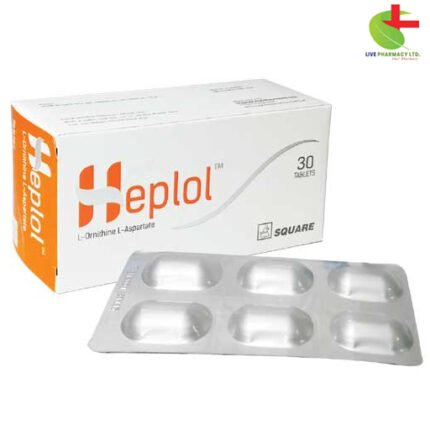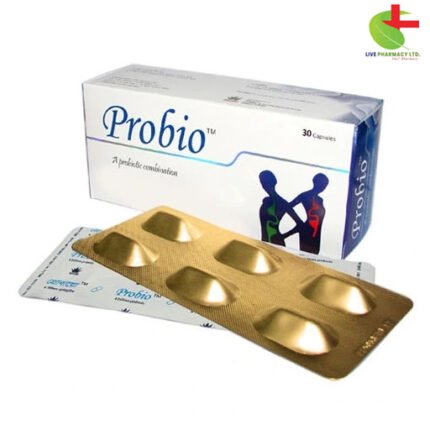Emcil 200
90.30৳ Strip
- Emcil is a reliable solution for infections triggered by mecillinam-sensitive organisms.
- Its active component, pivmecillinam, disrupts bacterial cell wall synthesis, providing effective treatment for various conditions such as acute cystitis and urinary tract infections.
- With precise dosing instructions tailored for both adults and children, Emcil ensures optimal therapeutic outcomes while maintaining tolerability.
- Trust Emcil for dependable relief and comprehensive care against bacterial infections.
 Brand
Brand
|
Square Pharmaceuticals PLC |
|---|---|
 Generics
Generics
|
Pivmecillinam |
Indications
Emcil serves as a treatment for infections provoked by mecillinam-sensitive organisms, including acute cystitis, complex urinary tract infections, salmonellosis, shigellosis, enteropathic E. coli diarrhea, gram-negative septicemia, and biliary infections.
Pharmacology
Belonging to a novel penicillin subclass, pivmecillinam is categorized as an aminopenicillin. It operates as a prodrug formulation of mecillinam, facilitating oral administration. While the prodrug form lacks antibacterial activity, the active drug is released through enzymatic hydrolysis during gastrointestinal absorption. Exhibiting bactericidal properties, pivmecillinam disrupts bacterial cell wall synthesis, with its primary action site differing from other penicillins. It demonstrates significant efficacy against Enterobacteriaceae, including E. coli, Klebsiella, Proteus, Enterobacter, Salmonella, Shigella, and Yersinia. However, its effectiveness against Gram-positive organisms, Pseudomonas aeruginosa, and Enterococcus faecalis is limited.
Dosage
For adults, the typical dosage entails 1-2 tablets thrice daily, adjusted based on infection severity. Specific dosing regimens include 400 mg initially for acute uncomplicated cystitis, followed by 200 mg every 8 hours for 3 days, and 400 mg every 6-8 hours for chronic or recurrent bacteriuria. In the case of salmonellosis, 1.2-2.4 gm daily for 14 days is recommended, with possible extension for 2-4 weeks to eliminate salmonella carriage. Treatment duration for complicated urinary tract infections ranges from 1-2 weeks. Prophylactic treatment for recurrent urinary tract infections involves one tablet nightly. For children, dosing varies by weight and condition.
Administration
Tablets should be consumed with at least 50-100 ml of fluid. While bioavailability remains unaffected by food intake, it’s advisable to take the tablets with or immediately after a meal.
Contraindications
Although no reports of Pivmecillinam allergy have surfaced among patients with known hypersensitivity to penicillins and cephalosporins, caution is advised. Patients with such histories should be excluded from Pivmecillinam treatment until further experience is gained.
Side Effects
Emcil is generally well-tolerated, even among patients with reduced kidney function. However, upper gastrointestinal disturbances like nausea, vomiting, diarrhea, or indigestion may occur, especially on an empty stomach. While skin rashes have been reported, the characteristic ampicillin-rash hasn’t been observed. Instances of hepato-, nephro-, or ototoxicity are rare. Although anaphylaxis hasn’t been reported, it can’t be entirely ruled out.
Pregnancy & Lactation
Due to detectable concentrations of mecillinam in umbilical cord and amniotic fluid, pivmecillinam use during pregnancy should be avoided. Mecillinam isn’t excreted into the milk of lactating mothers.
Precautions & Warnings
Patients with impaired renal function may experience elevated blood levels of mecillinam with repeated doses. Dose adjustments are necessary based on creatinine clearance levels.
Use in Special Populations
While initial dosing remains unchanged for patients with impaired renal function, maintenance dose adjustments are warranted based on creatinine clearance.
Overdose Effects
Though there’s limited experience with Emcil overdose, excessive doses may induce nausea, vomiting, and gastritis. Symptomatic and supportive measures are recommended, with hemodialysis potentially reducing blood levels if necessary.
Therapeutic Class
Mecillinams
Storage Conditions
Store in a cool, dry place, shielded from light and moisture.













Reviews
There are no reviews yet.